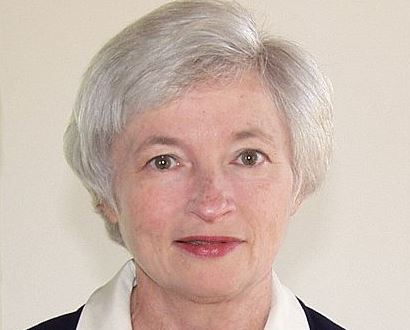Economy
Janet Yellen Testimony Verdict: Very Patient on Rate Hike Timing and Degree
Published:
Last Updated:
Janet Yellen, chair of the Federal Reserve, is delivering more good news to the financial markets in her Semiannual Monetary Policy Report to the Congress before the Senate’s Committee on Banking, Housing and Urban Affairs. The report will be full of good news for those who feared a rising rate environment that would be faster and more sharp than many would have hoped for. Still, the door for rate hikes has been left open — if the global situation allows it.
Yellen addressed the employment situation in the United States as “improving along many dimensions” with the unemployment rate now at 5.7%. This is down from 6.0% last summer and down from right at 10% at its peak in late 2009. Yellen also indicated that domestic spending and production “have been increasing at a solid rate” now that real gross domestic product (GDP) is estimated to have increased at 3.75% annually during the second half of last year.
Then comes the discussion about interest rates. Yellen said:
Despite the overall improvement in the U.S. economy and the U.S. economic outlook, longer-term interest rates in the United States and other advanced economies have moved down significantly since the middle of last year; the declines have reflected, at least in part, disappointing foreign growth and changes in monetary policy abroad.
ALSO READ: U.S. Household Debt Nears $12 Trillion
Yellen further discussed price trends, saying another notable development has been the plunge in oil prices — due to increased global supply rather than weaker global demand. Yellen discussed the mixed impact being a net-net positive:
While the drop in oil prices will have negative effects on energy producers and will probably result in job losses in this sector, causing hardship for affected workers and their families, it will likely be a significant overall plus, on net, for our economy. Primarily, that boost will arise from U.S. households having the wherewithal to increase their spending on other goods and services as they spend less on gasoline.
With the exception of the paragraph on the employment situation, Janet Yellen’s longest paragraph in her introductory comments discussed international market woes. Is this to mean that global policy is now a third Fed mandate after full employment and stable prices? Yellen said:
Foreign economic developments, however, could pose risks to the outlook for U.S. economic growth. Although the pace of growth abroad appears to have stepped up slightly in the second half of last year, foreign economies are confronting a number of challenges that could restrain economic activity. In China, economic growth could slow more than anticipated as policymakers address financial vulnerabilities and manage the desired transition to less reliance on exports and investment as sources of growth. In the euro area, recovery remains slow, and inflation has fallen to very low levels; although highly accommodative monetary policy should help boost economic growth and inflation there, downside risks to economic activity in the region remain. The uncertainty surrounding the foreign outlook, however, does not exclusively reflect downside risks. We could see economic activity respond to the policy stimulus now being provided by foreign central banks more strongly than we currently anticipate, and the recent decline in world oil prices could boost overall global economic growth more than we expect.
ALSO READ: Financial Security Hits All-Time High, While Many Still Struggle With Debt
On rates, Yellen confirmed that U.S. inflation continues to be running lower than the 2% objective of the Federal Open Market Committee (FOMC). The drop in oil prices was listed as a key driver, but the consumer price component also reflects declines in the prices of many imported items. Yellen further said:
Despite the very low recent readings on actual inflation, inflation expectations as measured in a range of surveys of households and professional forecasters have thus far remained stable. However, inflation compensation, as calculated from the yields of real and nominal Treasury securities, has declined. As best we can tell, the fall in inflation compensation mainly reflects factors other than a reduction in longer-term inflation expectations. The Committee expects inflation to decline further in the near term before rising gradually toward 2 percent over the medium term as the labor market improves further and the transitory effects of lower energy prices and other factors dissipate, but we will continue to monitor inflation developments closely.
Selected additional commentary includes our summary to outline each point made. Yellen’s discussion on the rate hike timing and outlook and aspects of the decision making is as follows:
What’s important is that Janet Yellen has signaled that investors, economists, businesses and consumers need not fear a rapidly rising interest rate environment any time soon. Sure, there are outs and contingencies if the global market improves. Still, the dual mandate of full employment and stable inflation around 2% now seem to have migrated to a tri-mandate that includes international economic and currency stability.
ALSO READ: States Where the Middle Class Is Dying
If you’re one of the over 4 Million Americans set to retire this year, you may want to pay attention. Many people have worked their whole lives preparing to retire without ever knowing the answer to the most important question: am I ahead, or behind on my goals?
Don’t make the same mistake. It’s an easy question to answer. A quick conversation with a financial advisor can help you unpack your savings, spending, and goals for your money. With Zoe Financial’s free matching tool, you can connect with trusted financial advisors in minutes.
Why wait? Click here to get started today!
Thank you for reading! Have some feedback for us?
Contact the 24/7 Wall St. editorial team.